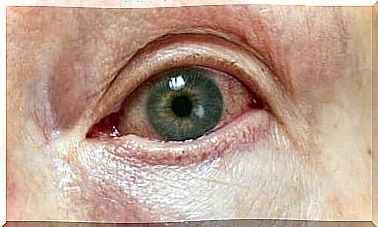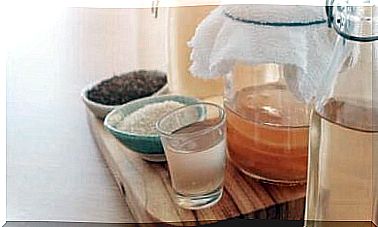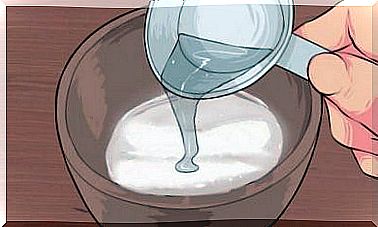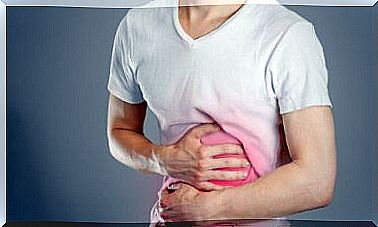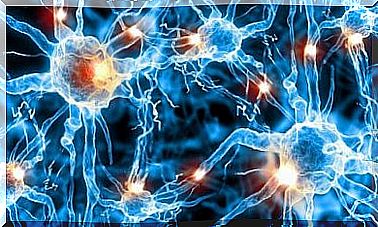Nutrition In Renal Failure: Everything You Need To Know

People suffering from kidney failure, especially in the chronic form, need to make significant changes to their diet. This will ensure you maintain good nutritional status and reduce the build-up of toxic substances that your kidneys cannot eliminate. In this article, we’ll tell you everything you need to know if you want to eat properly in kidney failure.
Of course, one should not wait for the patient’s condition to worsen in order to introduce adequate nutrition in renal failure . The sooner we make the necessary changes, the better the chances of stopping the disease.
Nutrition in renal failure
In patients with chronic renal failure, dietary errors are often found regarding the amount of protein and calories in the diet. In addition, they are a major contributor to increased mortality and disease worsening.
Therefore, it is of paramount importance to understand the dietary needs of patients with renal impairment at different stages of their development in order to prevent nutritional problems.
It should be remembered that there are different degrees of the disease : acute kidney failure, chronic kidney failure and finally, therapy to replace kidney function (hemodialysis and peritoneal dialysis). In this article, we will provide general nutritional guidelines for the disease, but these should always be adapted to the stage the patient is in.
Diet in renal failure
The diet in the case of kidney failure must follow very strict rules. Several food groups should be strongly limited or completely eliminated. Conversely, if the patient is already receiving dialysis regularly, the diet is not so restrictive.
Control the amount of protein
Protein restriction in moderate renal failure slows disease progression. Proteins put the kidneys over the strain. On the other hand, they are an essential component of the diet for the body to function well.
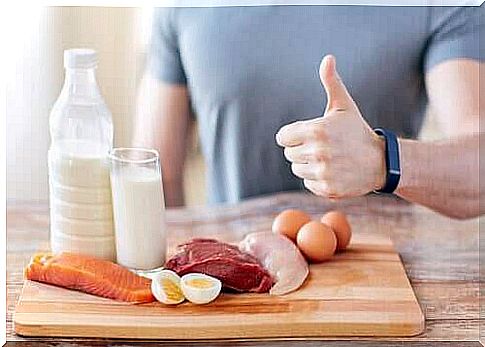
Currently, it is recommended to follow a moderate low-protein diet in which the amount of protein is 0.8 g / kg / day (60% of high biological value). These standards apply when the patient is not on dialysis. If you are undergoing dialysis these requirements can be increased.
Reduce the supply of potassium and phosphorus
Build-up of potassium in your blood increases your risk of heart changes. Therefore, plasma potassium levels should be monitored regularly. On the other hand, a high level of phosphorus in the blood significantly affects the condition of the bones in the long term. However, the protein reduction recommended in the previous point already includes a reduction in phosphorus supply.
Ensure adequate intake of calcium and vitamin D.
A study published in the journal Nefrology suggested that vitamin D supplementation had benefits at the vascular level.
Control your salt intake
Other factors to consider when it comes to nutrition in renal failure are sodium control. It promotes fluid retention that the kidney cannot eliminate. Unless you have high blood pressure, sodium can be taken in amounts of about 1000-2000 mg per day.
Limit your fluid intake
If you are on dialysis, your fluid intake should be monitored, as very little urine is passed by people under this type of treatment. So if a patient ingests large amounts of fluid but cannot excrete it, fluid can build up in the ankles and even in the lungs and heart.
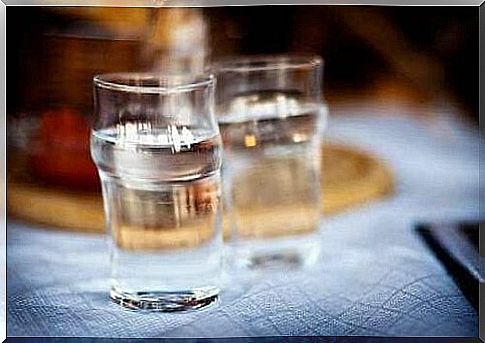
Fluid intake in the presence of kidney failure should be limited, especially in dialysis patients, so doctors recommend that you always monitor how much you weigh using the same scale to check that you are not gaining weight during the dialysis session.
Nutrition in renal failure – key principles
In order to apply the above guidelines, the following key nutrition principles should be followed. Of course, it will be ideal if you consult a dietitian directly, who will recommend nutrition in renal failure according to your individual needs. However, in any case, the following rules should be followed:
- Adjusting the amount of protein consumed in meat, fish, dairy and eggs for each patient.
- Controlling your consumption of legumes, vegetables, fruits, nuts and cocoa as these foods contain the most potassium. This is to avoid hyperkalemia.
- When preparing vegetables, legumes, or potatoes, keep them in water for three hours before cooking. Then boil them several times, changing the water during cooking. It is also recommended to sear them later to reduce the water content.
- Another method of eating vegetables is to eat them frozen. The fruit can be eaten canned or boiled, but limit the consumption to twice a day.
- Better to eat toasted bread as it contains less water.
- Limit your consumption of wholemeal products due to their high phosphorus and potassium content.
- Avoid drinking fizzy drinks, even if they are sweetened with sugar substitutes, as they do not properly eliminate the feeling of thirst.
- Do not eat highly processed foods, soups, and canned purees. Also, avoid sausages, cold cuts, meat and smoked fish, and packaged snacks to properly follow a low-salt diet.
- Eat whole dairy products in moderate amounts, regulating them based on the amount of phosphorus they contain.
As we have seen, renal failure nutrition follows quite complex rules. Therefore, do not hesitate to go to a specialist to adapt the diet to your situation.

